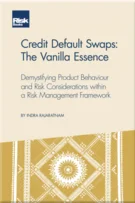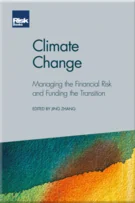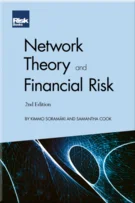The Management of Extreme Risks
The Management of Extreme Risks
Introduction: The Management of Risk Management
Prologue: The Job Interview
A Day in the Life
The Operational Risk Function
Risk Management for Beginners: The Operational Risk Policy
Risk Identification
Risk Assessment and Capital Allocation
Scenario Analysis
AMA: An Advanced Approach to Risk Measurement
Reporting
The New Product Approval Process
The Management of Extreme Risks
Financial and Other Disasters
Epilogue: Operational Risk Management in the Year 2020
The Meaning of Strategy
In all human endeavours we are faced with various degrees of complexity. Sometimes all the information we need to make a decision is readily available or we are able to process the existing information in order to get what we need. In these cases we decide by comparing the outcomes of all options and we choose what we deem to be the best on the basis of some set of predefined criteria.11. Of course, making decisions on the basis of one or more criteria is a difficult task in its own right, to which an extensive amount of research has also been devoted. Sometimes, however, the information is not there and, no matter how much processing power we are willing to throw at the problem, we cannot have a complete picture of decisions and consequences.
Examples of the first kind of problem are a game of noughts and crosses, choosing from a restaurant menu (a trusted one, at least) and deciding which mortgage to take after comparing conditions offered by all available banks. Examples of the second kind are a game of chess, choosing a product mix or a market mix for a specific company and deciding what actions to take during an electoral campaign.
At some
Copyright Infopro Digital Limited. All rights reserved.
As outlined in our terms and conditions, https://www.infopro-digital.com/terms-and-conditions/subscriptions/ (point 2.4), printing is limited to a single copy.
If you would like to purchase additional rights please email info@risk.net
Copyright Infopro Digital Limited. All rights reserved.
You may share this content using our article tools. As outlined in our terms and conditions, https://www.infopro-digital.com/terms-and-conditions/subscriptions/ (clause 2.4), an Authorised User may only make one copy of the materials for their own personal use. You must also comply with the restrictions in clause 2.5.
If you would like to purchase additional rights please email info@risk.net









